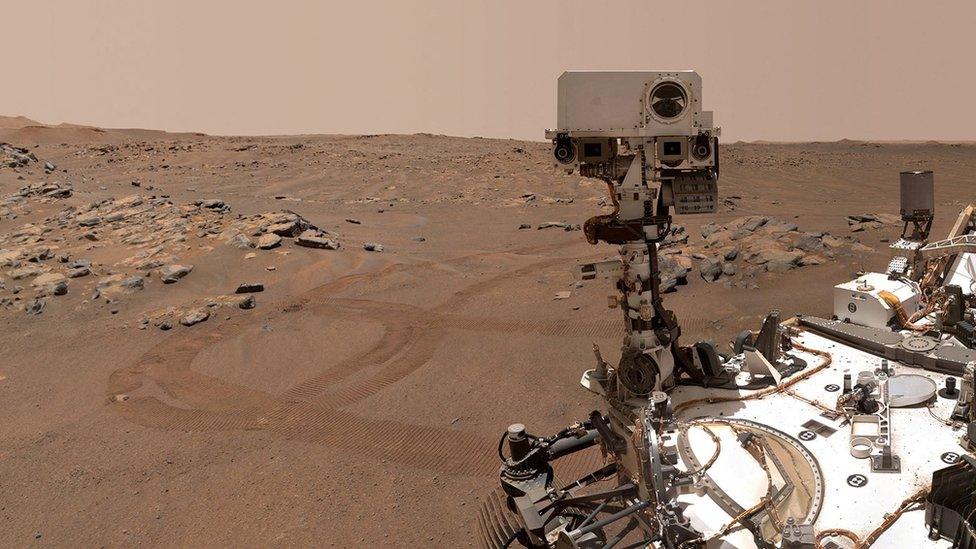Perseverance: Nasa rover's data suggests Mars was warm and wet
- Published
- comments

The robot completed its 470 million-km (292 million-mile) journey in 2021
Nasa's Perseverance rover has gathered evidence that supports the theory that ancient lakes once existed on Mars.
The six-wheeled robot landed in a crater called Jezero on the Red Planet in 2021.
Since then the rover's main task has been to look for clues that life once existed there.
A study of Perseverance's data, by teams at the University of California at Los Angeles (UCLA) and the University of Oslo, suggests ancient lake sediments were left by water which once filled Jezero Crater.
Perseverance pictured hanging from its rocket cradle just before landing
The findings help provide further evidence to support scientists who believe that parts of Mars were once covered in water, which may have been home to tiny forms of life.
The scans, taken by the rover over several months in 2022, gave scientists an idea of what is happening underground on Mars - in layers of rock which are 20 metres (65ft) deep.
Robot wiggle: A video simulation of Perseverance's first drive
The findings reinforced what previous studies have suggested, that Mars may be cold and dry now, but was once warm and wet.
Scientists also hope to be able to examine the sediment that Perseverance collected when these samples are transported back to Earth.
Having real samples will mean teams can use more sophisticated technology to study it in greater detail.
Nasa and the European Space Agency (ESA) hope to send a second rover to Mars in a multi-billion dollar mission to collect samples towards the end of the decade.
- Published6 March 2021
- Published21 July 2022
- Published20 September 2022
